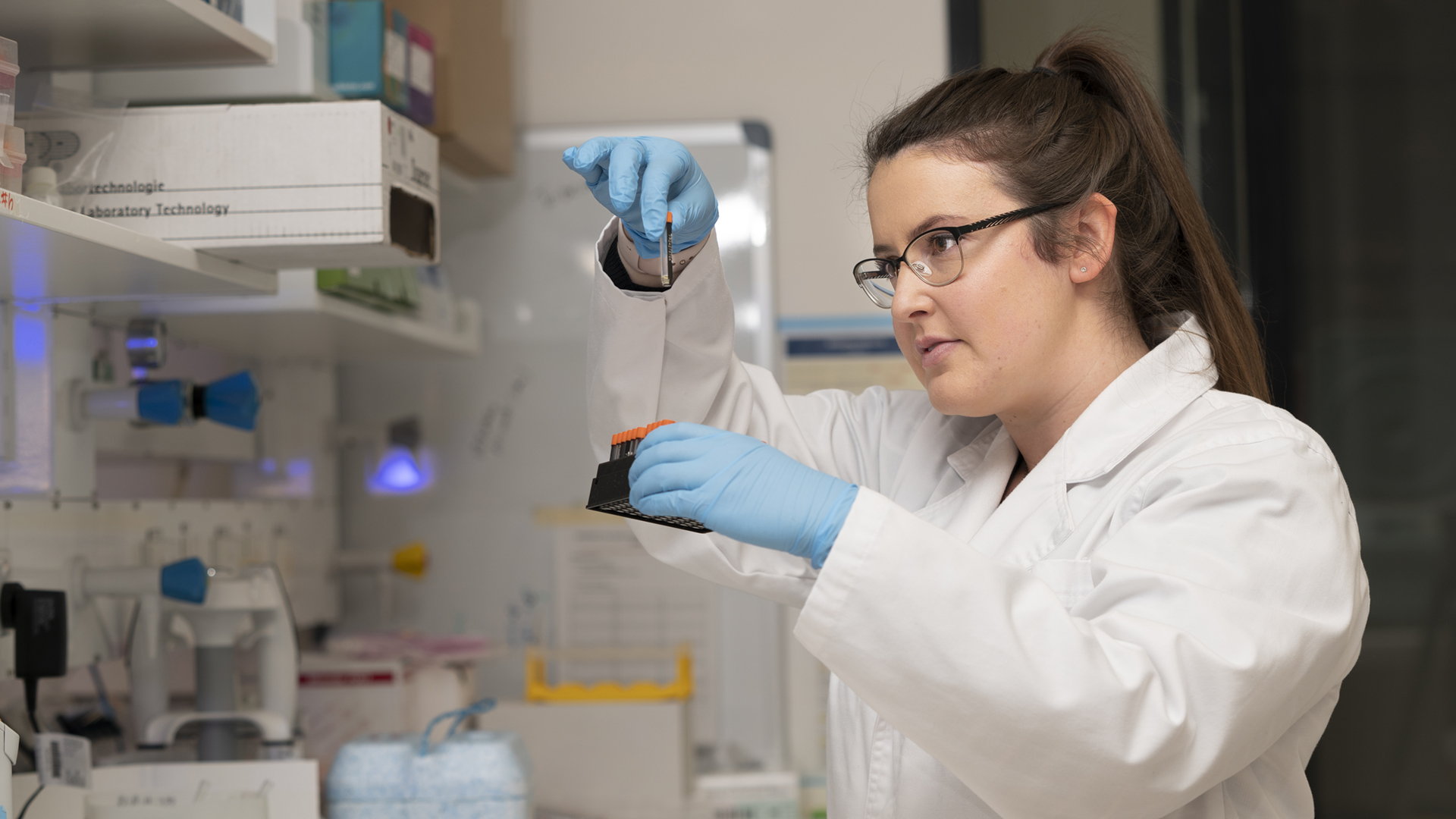A PhD student's efforts to help protect against the pandemic

On March 12, 2020, one day after the World Health Organisation characterized COVID-19 as a pandemic, ACT detected its first COVID-19 case. Soon, the territory enforced a temporary closure of non-essential activities and businesses.
It was during this shutdown when Sarah Hicks, then a first-year PhD student, joined a COVID-19 research project at the John Curtin School of Medical Research (JCSMR).
At the time, the team sought to find an effective way to assess the prevalence of antibodies for SARS-CoV-2—the coronavirus that causes COVID-19—in the Australian population.
Working with Kai Pohl from the Cockburn Group, Sarah developed an enzyme-linked immunosorbent assay (ELISA) that uses two different viral antigens to detect antibodies for SARS-CoV-2.
After two months of optimization, their ELISA achieved high sensitivity and specificity and was used to measure seroprevalence in approximately three thousand samples from people across Australia in the subsequent months.
It turned out that whilst still low, the prevalence of COVID-19 in the community was higher than numbers reported at the time had indicated. Later that year, they published their results in The Journal of Infectious Diseases.
Fast-forward to today, the same ELISA technique is supporting a new study to determine whether the vaccine has been effective at generating an antibody response in people living with malignancies.
“It’s really important to be able to look at how effective the immune response is in patients who have solid tumours and who are on chemotherapy or other treatments, so they can know whether they need to have booster shots or how to time the vaccination best around their therapies,” said Sarah.
Meanwhile, the team is also developing a separate ELISA to detect the antibodies against a protein named platelet factor 4 (PF4).
Platelets are tiny blood cells that form blood clots, and they orchestrate multiple physiological processes in our body. Recent studies have suggested that platelet-activating antibodies against PF4 are linked to a rare vaccine-associated adverse event called vaccine-induced immune thrombotic thrombocytopaenia (VITT).
“We know that VITT involves an autoantibody against PF4, but we’re not sure why the body is all of a sudden seeing PF4 as antigenic after vaccination when previously it wasn’t,” Sarah said.
She hopes that the new project will enable new insights into the mechanism of the post-vaccination formation of those antibodies against PF4.

Blood samples provided by vaccinated cancer patients and healthy people will enable researchers to determine the characteristics of the immune response to COVID-19 after vaccination and to inform future vaccination programs.
Sarah was interested in cancer research when she joined Professor Elizabeth Gardiner’s group as a master’s student. But the deeper she dived into the roles platelets play across vascular biology, the more she became fascinated by these blood cells, and her research focus changed from platelet-tumour cell interactions to a more platelet-focused project.
Nevertheless, the new study is “bringing all aspects back together,” said Sarah, referring to its multidisciplinary nature.
Connecting vaccine, cancer, and platelet sciences, the study is driven by a collaborative team of researchers. The project brings together experts including Professor Elizabeth Gardiner and Associate Professor Ian Cockburn at JCSMR, Associate Professor Aude Fahrer at the ANU Research School of Biology, Dr Terry Neeman at the Biological Data Science Institute, and medical oncologists Dr Yada Kanjanapan and Dr Desmond Yip at The Canberra Hospital.
At the moment, the researchers aim to recruit 200 people with cancer and 100 healthy volunteers to donate their blood samples for the test.
“One of the major objectives of this project is to obtain a measurement at six months post-vaccination to determine how long-lived the antibody response is,” said Sarah.
Sarah is hopeful that the results of this project will help inform effective strategies for vaccinating people with solid tumours and receiving therapies.
“Cancer patients are a very vulnerable population of our community. It’s crucial to make sure that they’re getting the most out of the vaccination and that they’re as protected as they can be,” Sarah said, “I’m glad that our work can potentially help contribute to that.”
For more information about participating in the study, please contact: chs.everest@act.gov.au
